Broken Promises? 'Mr. President' Challenged on 'Different' Leadership
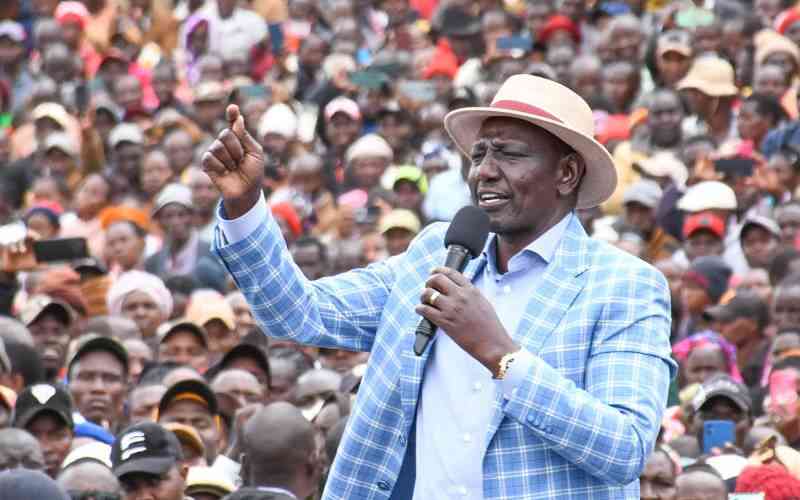
Why Ruto Faces Unprecedented Public Anger
President William Ruto recently asked why his administration is facing such intense backlash compared to his predecessors. The answer is not rooted in short-term memory loss among Kenyans, but rather in a significant shift in public expectations and political tolerance. When Ruto came into office in 2022, he did not present himself as a typical politician. Instead, he positioned himself as a transformative reformist, championing the "Hustler Nation" and vowing to dismantle elite privilege.
His promises centered on creating broader economic opportunities, addressing inequality, and rescuing the country from a corrupt political class. Just over two years later, that vision has largely collapsed. Those once celebrated as reformers are now seen by many as part of the very system they pledged to change.
More Than Policy Failures: A Deep Betrayal of Trust
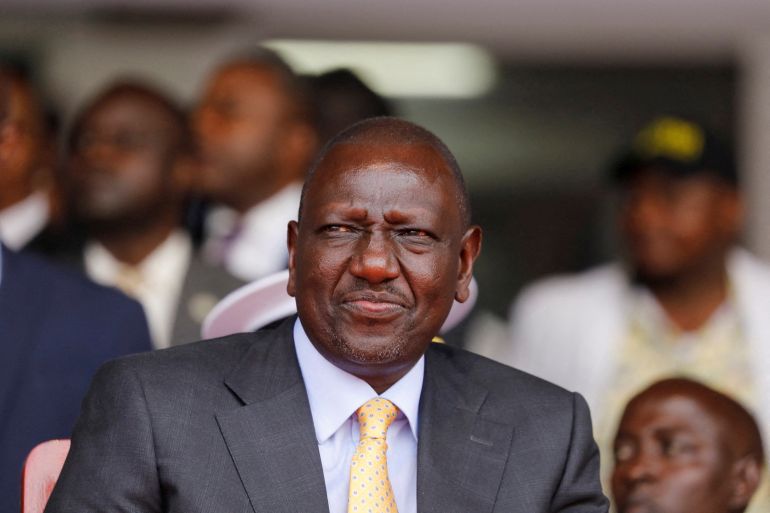
Image Above: President Ruto. Credit: Al Jazeera
The anger facing President Ruto is not simply due to policy missteps. While high living costs, aggressive taxation, and persistent corruption are serious concerns, they are only part of the story. The core issue is a profound sense of personal betrayal.
President Ruto explicitly promised to be different. Unlike Mwai Kibaki, who focused on economic revival, or Uhuru Kenyatta, who was viewed as a representative of the political elite, Ruto crafted an identity as a man of the people. His story of rising from a "chicken-seller" to the presidency inspired many and fostered genuine belief in his commitment to change.
When his administration began to adopt policies that contradicted that promise, the sense of betrayal deepened. What we are seeing now is a response to broken trust, not just to bad governance.
A New Generation Has Rewritten the Rules
Compounding the political pressure is the rise of Generation Z, a youthful and assertive demographic with access to vast information and global civic awareness. This generation is fundamentally different from those before it. They are less influenced by tribal affiliations, less tolerant of symbolic gestures, and less patient with ineffective leadership.
They are not afraid to challenge authority, and they use technology to organize and mobilize. What once might have been internalized disappointment is now public, vocal, and sustained opposition. The rules of political engagement in Kenya have changed, and leaders who ignore this shift do so at their own peril.
A Combative Response Has Worsened the Crisis
Rather than engage constructively with critics, President Ruto's administration has often responded with combative and dismissive rhetoric. Protesters have been labeled criminals, youth have been mocked for their economic frustrations, and the government has repeatedly used questionable statistics to downplay public suffering.
This approach has alienated citizens even further. Where previous governments, for all their flaws, at least made an effort to acknowledge public grievances, Ruto’s team has often opted for denial and confrontation. This strategy has only intensified the backlash.
Visibility Has Become a Liability
Ruto’s near-constant public presence, once a tool for building connection, has now turned into a recurring reminder of unmet promises. His daily speeches, social media posts, and public appearances amplify the contrast between what was promised and what has been delivered.
In a country facing real economic hardship, frequent appearances without real solutions have become a source of frustration. Speaking to a struggling public without meaningful change invites criticism, not understanding. The visibility that once symbolized accessibility now underscores disappointment.
A Public Demand for Accountability, Not Vengeance
This moment is not fueled by bitterness or partisanship. It is a collective call for accountability. President Ruto raised public expectations by design. He chose to present himself as a transformative leader. Now, the public is simply holding him to that standard.
The criticism he faces is not excessive. It is a natural response to unmet expectations and broken promises. Kenyans, particularly the youth, believed in the promise of change. That belief came with the expectation of delivery.
What we are witnessing is a population no longer willing to accept excuses or delay. The outcry is not about politics alone. It is about hope, disappointment, and the enduring demand for a government that lives up to its word.
Recommended Articles
Youthful MPs Spark Political Firestorm, Vowing to Forge a 'Third Force' for 2027!

A new political formation led by young Kenyan MPs is challenging traditional politics, rejecting party lines, and critiq...
Rigathi Gachagua's Tumultuous Return: Crowds, Attacks, and Political Fallout
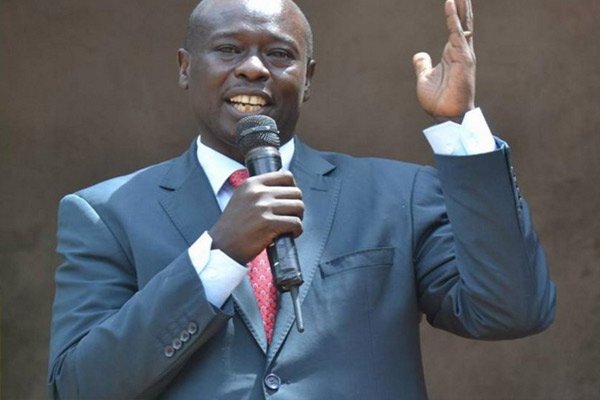
Former Deputy President Rigathi Gachagua's return to Kenya on August 21, 2025, from a US political tour was met with a l...
Political Titans Clash: Ruto, Gachagua, Raila Brace for November By-Election Showdown
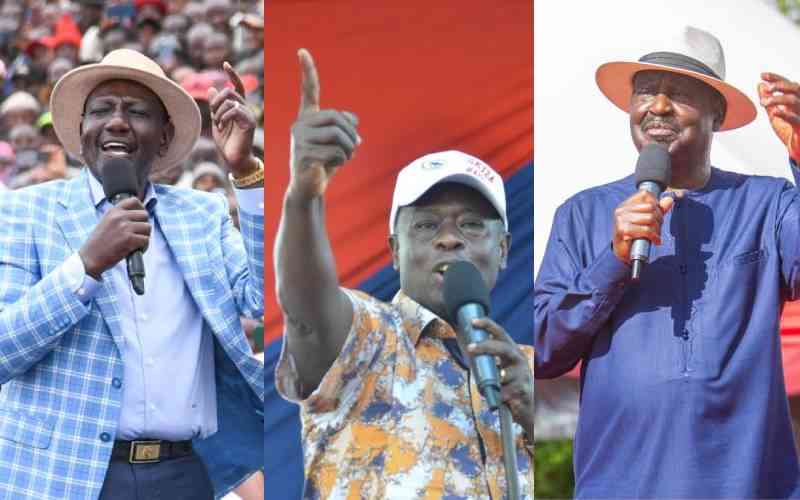
Kenya's political landscape is set for a major shake-up as the IEBC announces November 27 by-elections for 23 constituen...
Rigathi Gachagua’s U.S. Tour Sparks Sovereignty Debate and Political Backlash in Kenya.
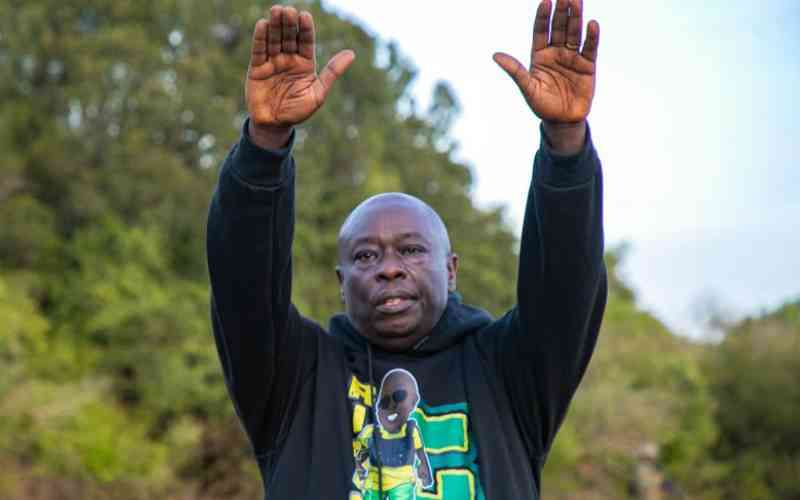
Former Deputy President Rigathi Gachagua's recent actions and statements during his US trip have sparked significant con...
Meru Constituents Demand MP Rahim Dawood's Ouster Over Stalled Projects & Controversial Finance Bill Support
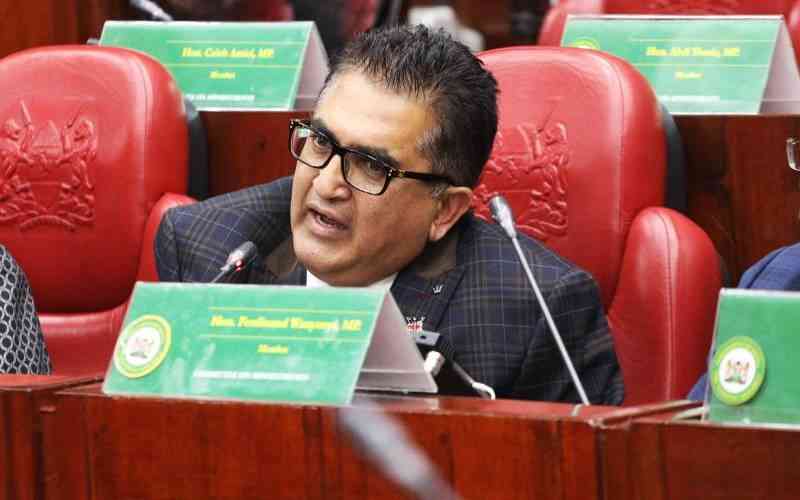
North Imenti MP Rahim Dawood faces a recall petition spearheaded by lawyer Mugambi Kiogora, accused of betraying constit...
You may also like...
The Forgotten Isles of the Red Sea: Eritrea’s Dahlak Archipelago

To call the Dahlak Archipelago a point of contention is an understatement. From international interest in its strategic ...
From Etisalat to 9mobile to T2: The Rise, Retreat, and Reinvention of Nigeria’s Fourth Operator

From a meteoric rise to a challenging retreat, Etisalat Nigeria’s evolution into T2 tells a story of resilience, wins, a...
Boxing Blockbuster: Jake Paul and Gervonta Davis Set for November Showdown

In a surprising announcement, Jake Paul is set to face WBA lightweight champion Gervonta "Tank" Davis in an exhibition b...
Carabao Cup Shocker: Grimsby Stuns Man Utd in Penalty Thriller

Manchester United suffered a shocking Carabao Cup exit after losing 12-11 on penalties to League Two side Grimsby Town. ...
Venice Stunner: Paolo Sorrentino's 'La Grazia' Captivates Critics with Record-Breaking Ovation!

Paolo Sorrentino's new film “La Grazia” opened the Venice Film Festival to critical acclaim, presenting a nuanced portra...
The Hunt for 007: Frontrunners Out, Legends Back, New Details Emerge in Bond Saga!

The search for the next James Bond intensifies as actors like Taron Egerton and Glen Powell rule themselves out, while M...
Reading and Leeds Festival Plunged Into Chaos by Secret Set Leaks and Star's Last-Minute Snub

Reading and Leeds Festival 2025 is buzzing with fan speculation about secret sets from The Foo Fighters and Chase & Stat...
Naira Marley Breaks Silence on Mohbad's Death Amid Mounting Controversy

Musician Naira Marley has publicly addressed the controversial death of his former signee, Mohbad, sharing his side of t...